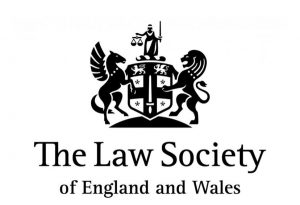5 tips on how to ensure that your digital assets are included in your estate planning
Organising your assets such as land, bank accounts and jewellery is a key part of the estate planning process. However, in the ever-changing digital age, we must also consider those non-traditional assets which hold sentimental or financial value (or sometimes both!). Examples of these include cryptocurrency, online-only trading accounts, social networking profiles, photographs or other documents held in cloud storage.
A recent survey conducted by the Law Society showed that 93% who made Wills did not include their digital assets and only 7% said they were fully aware of how their digital assets will be dealt with on their death.
Digital assets being neglected from estate planning makes it difficult to obtain access to them once the owner has passed away. It also raises issues of privacy and security in circumstances where access to email addresses, passwords etc are required in order to retrieve information pertaining to digital assets. In addition, most of these assets do not allow you to nominate a beneficiary in the event of your death and are subject to various layers of security and verification checks which further complicate matters.
It is not advisable to give others your password as doing some, a breach of the service provider’s Terms and Conditions. Accessing another person’s account without permission from the service provider could also be a criminal offence under the Computer Misuse Act.
In light of the above, this article will focus on the 5 practical things you can do to protect your digital assets from being lost, misdirected or simply unaccounted for in the event of your death.
Tip 1
Create an inventory of all your digital assets
Keep a written record of all digital assets in a safe place. This can be a handwritten list that can be stored in a fireproof safe. Alternatively, you can set up an online safety deposit box or password manager which is heavily encrypted and secure in order to store this information. You must also remember to amend the list when you change your passwords, or you no longer own an asset.
Alternatively, the inventory does not necessarily need to have your password or security details but please ensure that the information provided is clear and specific enough to identify the assets in question.
Tip 2
Create a Will and refer to your digital assets
It is important to gift your digital assets as part of your Will as failure to do so may lead to the asset being vested in the state and not forming a part of your estate. In doing so, you must ensure that these gifts are specific and identifiable.
You can also appoint an informal ‘digital executor in your Will to deal with these assets. Their role will be separate and far less powerful than that of an executor and would be limited to your digital assets. It is important to note that this role does not currently have any standing in law but can be put in place on an informal basis. We recommend appointing someone who is knowledgeable in tech matters or perhaps someone who is familiar with your digital assets and how you wish for them to be dealt with.
Tip 3
Provide instructions to your executors/loved ones about your digital assets
You should communicate with the executors of your Will and give instructions on how you intend for the assets to be used. For instance, some people would prefer their social media to be retained, others preferred for it to be deleted once they are gone. Also, some service providers now allow you to provide a contact who can control your account when you die, please ensure that you utilise this service.
Other assets like cryptocurrencies or ownership of domain names may need to be kept for a longer period before being sold, in order to maximise its value. In the absence of instructions, these assets may be liquidated or even lost forever. It may also be useful to provide details of financial advisers or brokering services that you use.
Tip 4
Create a Trust
If the assets are of a substantive monetary value, then you can create a Trust either in your lifetime or in your Will which seeks to safeguard the asset whilst also providing the option of dealing with the asset in a flexible and tax-efficient manner by the trustee. Again, it is also important to notify your executors or trustees of the existence of such Trusts and how they can be accessed.
Tip 5
Passwords can be provided in Letter of Wishes if absolutely required
Items which hold more sentimental or financial value such as passwords to social media profiles or trading accounts can be included in your letters of wishes and not your Will. This is because a Will becomes a public document after probate has been granted. Letters of wishes on the other do not need to be disclosed as part of the process of obtaining a Grant.
If you have any estate planning queries, contact our solicitors in Enfield on 02034173859.
The information given here is intended for general information purposes only and should not be taken as legal advice.



4 thoughts on “5 tips on how to ensure that your digital assets are included in your estate planning”
Pingback: How To Protect Assets In A Divorce
Pingback: Should I use a Solicitor for Probate: 5 Reasons to Use a Solicitor for Probate
Pingback: Exclusive Possession: The paradox resolved in the Proctor case.
Pingback: The 3C's for parenting /sharing caring over Christmas